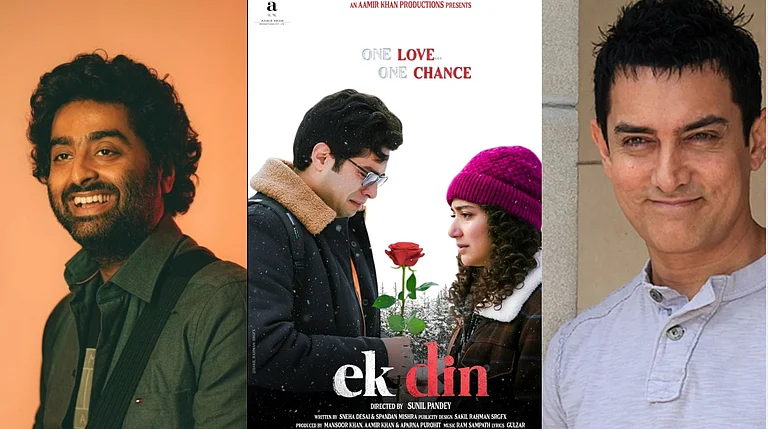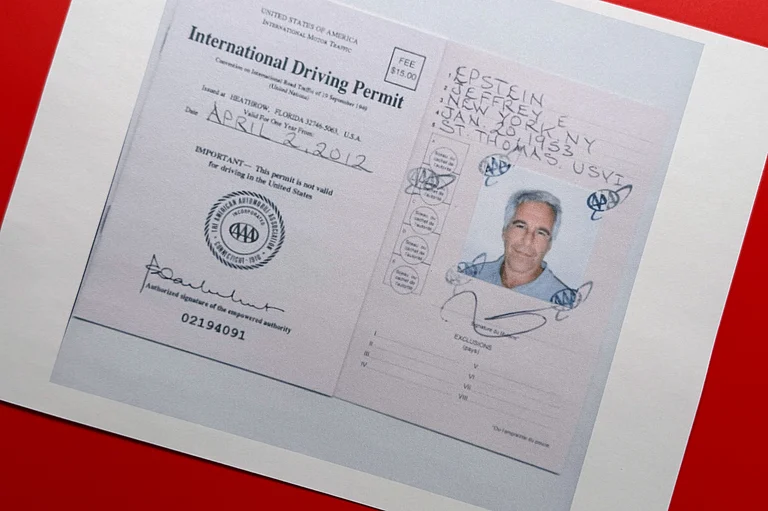CAB meters in New York don't tick for Biju Mathew. This despite his coaxing and cajoling hardboiled cabbies to accept the fare. "Please don't insist," said a cabbie firmly after a ride with Biju from 42nd Street to Greenwich village, "can't take money from you." In dollar-driven Big Apple that, perhaps, is sufficient to make anyone special! But that's not why Biju is special.
He's special because eligible as he is to be part of the elite US green card-holding club, 35-year-old Biju, an assistant professor of Information Systems at New Jersey's Rider University, has had the courage to write himself a life script that rejects the comforts of a stereotype. As an academic he could well have lived in one of the city's posh white-collar localities, published research papers to get ahead in the professional race, and led a model immigrant life. Instead, he lives in a Latino and Black, downmarket neighbourhood north of Harlem which he feels is about "real life and its struggles", writes fiery articles for left-wing magazines brought out by immigrant Asians and spends all his spare time mobilising the mostly immigrant yellow-cab driver community against the titans of the taxi trade through the New York Taxi Workers' Alliance (NYTWA). And it was Biju and the 25-member organising committee of the NYTWA that organised the first-ever-of-its-kind taxi strike in New York this May 13: with over 95 per cent of the city's yellow-cab drivers staying off the road as a protest against harsh rules introduced by the city's mayor.
"Why cabbies?" repeats Biju in tones of polite incredulity, as if the answer should be as obvious to everyone as it is to him. Then with a patience only teachers know, he lists reasons for his curious affinity for the cabbie community. Ninety per cent of the cab drivers in New York City are immigrants like him. They work 12 hours daily, seven days a week. They begin each day by paying the garage owners about $100 for the cab and then spend $20 for gas. Plus, the Taxi and Limousine Commission (TLC), the city's regulatory body, makes a whopping $2-3 million a month through tickets and licences issued to them.
"But they get nothing back from the system that takes so much from them because the bosses have always thought that this huge mass of Third World immigrant drivers belonging to 85 different ethnicities—Indians, Pakistanis at one end, Haitians at the other—can never unite. Too many languages, different regional identities and recent immigrants whose main aim is to earn the dollar. The strategy seems to have been to make earning the dollar so exhausting that the will to join anyone's politics, even their own, is dead. They are used to provide services, pump up the economy and then ignored," says an irate Biju.
The brewing discontent, however, boiled over recently when this April, the TLC, headed by mayor Rudolph Gulliani, announced 17 new rules for the cabbies under the guise of "safety". The new proposals called for higher fines by the commission, quadrupling liability insurance requirements for cabs and mandatory drug testing amongst others. "Safety would now include such things as increases in fines for smoking in one's cab when one is off duty! Suspension of a driver for 30 days if he collected six penalty points on his license during an 18-month period, something achievable with only two illegal turns and the obstruction of one intersection. Absurd!" observes Biju.
It's against these absurdities that Biju's committed and sustained activism toils hours at end. Tousled hair and heavy beard peer hard into the piles of propaganda papers on a desk placed in a nook on the 10th floor of an old garment centre building in West 27th Street that Biju calls the "NYTWA office". A phone, a broken-down fax machine and in the company of young firebrand staff director Bhairavi Desai, Biju works at bringing revolution onto the roads of New York. From here, they have done and continue to do the impossible: unite as a group multi-ethnic, immigrant "lease" drivers.
Biju's MBA degree from Jamshedpur's XLRI did help the organising bit. But only somewhat: "Nothing that business schools teach works in the taxi industry really. Hierarchies mean nothing." Constant two-way communication does.
SO between teaching and such hectic activism, when does he manage a personal life with wife Sangeeta Kamat who's also an academic? "Both of us believe in the fight for a just and egalitarian society," says Biju. The "rude" New York cabbie, he says, is the butt of umpteen jokes, media glare and governance but the drivers' woes are on nobody's agenda. What about the fact that the high-strung city is rife with riders who malign immigrant drivers, cheat them on fares, leave behind keepsakes of spilled cappuccino, crumbs and masticated gum. At night come the drunks and the muggers who direct the cabbies right into the site of crime. For every breakneck cabbie, there are a dozen behind-schedule screechers who demand to go faster, people who like to flag a taxi in a crosswalk, where picking up passengers is illegal. They like to be dropped off exactly at their door, whether this requires double parking or not.
"For two years we've worked to highlight these issues. When we began in 1996, we were a small group with five or six drivers. By July '97 we had 800 members," recalls Biju. "Today the movement is going ahead...after the success of the May strike, the membership and the challenge have both more than doubled and there are moves to undermine our unity."
Understandably so, observes Mir Ali Hussain, assistant professor of Organisation Theory at the Indiana-Purdue University and member of the Forum of Indian Leftists in the US: "The strike was a collective action that may well turn out to be a turning point in immigrant politics in America—they are part of the social fabric of this country and they will demand justice from it."
Agrees Vijay Prashad, who teaches International Studies at Connecticut's Trinity College: "For the immigrant working class movement, May 13 is exemplary. Like the labour activity of the migrant farmers in California in the 1960s that set the stage for the formation of the United Farm Workers, the struggles of these urban migrants may lead to the formation of a movement of immigrant workers and put the problem of immigrant rights squarely on the plate of the capital-labour struggle."
And following as they have been the cab-drivers' struggle closely, both Ali and Prashad are fervently agreed upon the fact that Biju is the right man for the job. As Ali points out: "The strike didn't happen in one day. It took years of hard work, patience and dedication."
A dedication that puzzles many in his workplace, says Biju. Naughty amusement plays on his lips as Biju talks of how his university colleagues so unnaturally block out the entire strike episode while conversing with him: "Don't believe Hollywood, it's a conformist world out here and they just don't know what to make of me. " Little wonder then that front-page articles in the New York Times during the entire strike period repeatedly referred to Biju as the NYTWA organiser who is "not a cabbie but a college instructor". Other publications also made perplexed references to him as someone who "doesn't look his part as most other labour organisers with sandals and a loose kurta shirt". Says Biju: "I just don't fit into their stereotype of most Indian immigrants: the Silicon Valley computer whizkids and Long Island doctors, most of whom think themselves well-integrated into white America even before they leave the Indian shores."
Biju though has left little behind in India. His native appetite for dal-chawal, the Hyderabadi Hindi, the many magazines from home—are very much a part of him still. "I had planned to go back home permanently this year. But I have developed an eye problem last year, something the doctors don't know how to cure yet. So I'll have to be here some more time for any potential treatment that comes along the way. Till then we'll create havoc here I suppose," he smiles. The last smile though is still a long distance away. A distance in which Biju's journey to equality will see him getting a lot many more free cab rides in New York!

























